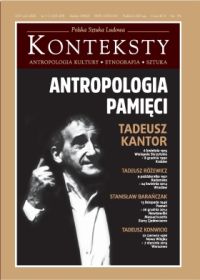Ślady Pisma u Tadeusza Różewicza
Traces of the Holy Writ in Works by Tadeusz Różewicz
Author(s): Michał KlingerSubject(s): Philosophy, Language and Literature Studies, Theology and Religion
Published by: Instytut Sztuki Polskiej Akademii Nauk
Keywords: Tadeusz Różewicz;Bible;poetry;anthropology;
Summary/Abstract: Texts by Tadeusz Różewicz, as in the case of a “tzaddik”, contain inspirations by fragments of the holy Writ. The article attempts to recreate the method applied by Różewicz to introduce the Bible into his oeuvre and his key to interpreting the texts. From this vantage point the article analyses the examples of a fragment of the narrative poem: Et in Arcadia ego, and the poems: Nieznany list, *** [rzeczywistość], and Ocalony. In a fragment of Et in Arcadia ego the poet confronted two quotations from the story about Paradise and constructed a poem endowed with a theologically surprising meaning (a woman offers hope instead of punishment). Nieznany list includes two distinctive motifs: the woman taken in adultery from the Gospel of St. John and an apocryphal monologue of Jesus in Cana of Galilee, treated as a parenthesis. A confrontation of the motif of the woman taken in adultery with a suitable text from the Gospel demonstrates how the Poet – by rejecting the most famous elements of the narration, even the female protagonist – achieved the extraordinary effect of “the silence of the text”, including the “obliteration” of the only “letter from Jesus”. Różewicz replaced the “moral scandal” associated with this Gospel with a “hermeneutic scandal”, while a discreet motif of the “finger” introduces Moses in the Desert. The addition of the poem’s parenthesis to the reflections produces an astonishing effect: “the lost manuscript” turns out to be a Paschal palimpsest of the “blotting out the handwriting of ordinances that was against us”. An analysis of *** [rzeczywistość] refers to a discussion about the possibility or impossibility of metaphysics in Różewicz’s poetical experience.The introduced concept of the sui generis“transcendental grammar” used by him leads to the discovery of apophatic theology, known in the Orthodox creed, in place of the presence of transcendence. The fact of significant repetitions despite the laconic poetics (“he bent over”, “I turned around”) is subjected to a detailed analysis. Here, the source appears to be the Gospel of St. John in which such repetitions lead us, together with Mary Magdalene, towards Heaven. The poet, however, remains with ‘’Moses in the sand”. In his contact with the Writ Różewicz’sachieved astonishing interpretation results both for his poems and for theology. It has been suggested that he could have formulated some of his intuitions in profound contacts with Jerzy Nowosielski.
Journal: Konteksty
- Issue Year: 308/2015
- Issue No: 1-2
- Page Range: 469-481
- Page Count: 13
- Language: Polish
- Content File-PDF

